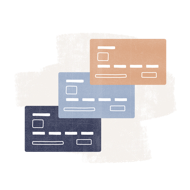As an entrepreneur or solopreneur, it’s important to ask yourself: What are you here to do?
In my opinion, the purpose of entrepreneurship—besides providing value to the marketplace—is to build an asset that produces a state of financial freedom. It’s about getting to the point where you no longer have to continuing working long, tedious hours, taking little vacations and searching for the next dollar, but instead it’s to build a system that continually produces marketplace value that translates into new sales, new profits, and new jobs in an automatic fashion.
This asset can be held for the long haul and continually managed, giving you balance sheet value and allowing you to continue managing the profits that it generates, or you could sell this asset for an upfront stream of cash that could send you straight into an early retirement.
What Is an Asset?
The definition of what constitutes an asset varies, depending on whom you ask. For example, some people will include Social Security as an asset while others will not, just as some people will include personal items as an asset, while others will not. In my opinion, both Social Security and personal items are assets, based on the definition of an asset being an economic resource that you own, which can currently or potentially produce positive economic value: cash.
1. Tangible Assets
Tangible assets are assets with more of a physical composition, and they can include both long-term and short-term, or current, assets. Long-term assets are assets that are expected to provide some benefit after one year. Such assets can include, but are not limited to, the following:
• Equipment
• Real estate
• Certain forms of inventory
• Certain types of client portfolios
• Long-term stock portfolios
• Long-term fixed-income portfolios
Then you have current assets, which are usually already in cash form—or will turn into cash within one year. These include, but aren’t limited to, the following:
• Cash itself
• Short-term receivables
• Certain forms of inventory
• Certain types of client portfolios
• Short-term stock trading in the stock market
2. Intangible Assets
Intangible assets are those without a physical composition for the most part, even though they still hold some sort of economic value. These types of assets include, but aren’t limited to:
• Trademarks
• Patents
• Copyrights
What Is Financial Freedom?
Successful real estate entrepreneur Mitch Stephen says that from his research, “Financial freedom is what happens when your wants and needs are exceeded by your passive income.”
“I always assumed that people who were “financially free” were rich… [but] being financially free and being wealthy [are] two completely different things,” he adds.
When I refer to financial freedom, I’m not talking about being “wealthy” in terms of having millions in assets, nor making $250,000+ per year as an individual. In my opinion, financial freedom is simply having enough passive monthly income from your assets to cover your personal expenses including housing, food, insurance, transportation, any debt payments, entertainment, recreation, and other expenses.
To manage this properly, you want to strategically control your expenses to where you are living below your means, while at the same time you are building/acquiring assets that provide passive monthly income streams. Some of these assets include:
• Setting up a profitable business, or businesses, and allowing employees to operate it for you
• Creating client portfolios that produce recurring income off of the on-going relationship(s)
• Setting up a high-traffic blog or vlog channel to collect compensation from sponsors
• Acquiring real estate and leasing it out to good tenants
• Creating books or music to receive royalties
• Collecting dividends from your stock portfolios
• Collecting fixed income from your bond, annuity, CD, or P2P portfolios
• Running required expenses through credit cards with cash-back rewards, then paying the balance(s) off before the grace period is over and pocketing the “free” cash-back income
Being Rich vs. Being Financially Free
You hear every day of the stories of entertainers and other celebrities who made a significant amount of money, only to lose it within a short period of time through bad spending habits, divorces, alimony, and other financial calamities. In other words, despite having made millions, they are not financially free due to very bad spending habits.
The smarter you become with your money, the quicker you will be able to reach financial freedom. Really take a look at your life, and examine what you spend on a monthly basis, then ask yourself the following:
• What is it that I really need? Can I get by with less?
• Do I really need a $250 to $600 per month car note?
• Do I really need a big house?
• Do I really need a ton of designer clothing?
• Do I really need a ton of expensive jewelry?
• Do I really need cable television?
• Do I really need my high-maintenance girlfriend or boyfriend?
• Must we eat out this often, or could we save money cooking at home?
• Must we spend money on vacations, or would a staycation be cheaper and more enjoyable?
• Must we spend money at entertainment venues, or would a campfire be more enjoyable?
An Example of What Financial Freedom Looks Like
I’ve been involved in the Fintech industry for nearly 10 years, and the reason I chose this profession was because I could provide true value to clients in the form of assistance with financing, technology, and risk management, while at the same time building up real assets to the point where I could be financially free.
To provide an example of what financial freedom looks like in my industry for a merchant-processing sales agent. Let’s say someone strategically managed their personal expenses and any remaining debt to where they needed $4,000 per month in passive income to cover all of their expenses, including some side entertainment and recreation. Once the debt is paid off, let’s say this goes down to $3,500 a month.
• They would go out and acquire 75 merchants who process $250,000 per year on average in merchant processing, with a basis point markup from interchange of 40 basis points that they would split 70/30 with their Merchant Service Provider (MSP).
• This produces $52,500 per year, or an average of $4,375 per month, in passive income. Once the portfolio is established, there’s minimal work that needs to be done on a daily or weekly basis by the sales agent to maintain the portfolio—other than the occasional service calls, regulatory updates, and making sure their merchants remain satisfied with all services.
• The $4,375 per month and $52,500 per year is above the baseline needed (before taxes) for them to reach “financial freedom.” When you add in their other activity, such as their investments in stocks, bonds, certificates of deposit, annuities, rental real estate portfolio, etc., their total income amount grows even more above the amount needed to reach financial freedom status.
Here’s to Life, Liberty and Happiness
Being financially free is exactly as it sounds: You are free from the traditional chains of having to consistently produce new income. It can provide life, liberty, and happiness, which are the three things that our Declaration of Independence in 1776 was founded on. In 2016, it’s time to make your own declaration to be financially independent.
This article was originally written on July 6, 2016 and updated on November 1, 2016.


Have at it! We'd love to hear from you and encourage a lively discussion among our users. Please help us keep our site clean and protect yourself. Refrain from posting overtly promotional content, and avoid disclosing personal information such as bank account or phone numbers.
Reviews Disclosure: The responses below are not provided or commissioned by the credit card, financing and service companies that appear on this site. Responses have not been reviewed, approved or otherwise endorsed by the credit card, financing and service companies and it is not their responsibility to ensure all posts and/or questions are answered.